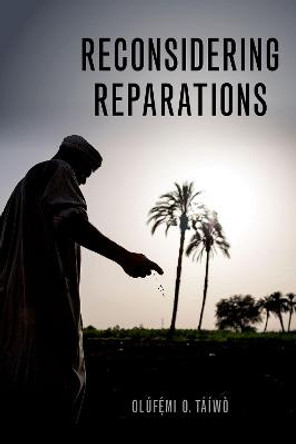Description
About the Author
Saptarishi Bandopadhyay is an Assistant Professor at Osgoode Hall Law School, York University. He has followed and engaged disaster management efforts in India, in the borderlands between India, Pakistan, and China, and in the Philippines. He has learned from and advised officials and civil society in India, Thailand, the Philippines, and Canada and has published widely on disaster risk, international law, and related areas. Saptarishi has received research and advocacy grants and fellowships from the Canadian Social Sciences and Humanities Research Council, Harvard University, the Public International Law and Policy Group, the Center for International Environmental Law, Brown University's Watson Institute for International Studies, York University's Dahdaleh Institute for Global Health Research, and the Berkman-Klein Center for Internet & Society, among other institutions.
Reviews
Bandopadhyay (York Univ., Canada) compellingly argues that nation-states use natural disasters as a means of legitimizing authority. He contends that disasters do not exist outside a government structure, and that causes and solutions to catastrophic events are inexorably intertwined. * C. A. Sproles, CHOICE *
An ambitious and timely intervention into a pressing set of concerns, questions, and issues. By combining a longue duree approach with a focus on writing a 'history of the present', Bandopadhyay produces original insights of cross-cultural significance. Those insights will have application to the numerous projects which will surely emerge to rebuild states, societies, economies, and systems in the wake of the current pandemic. * Sundhya Pahuja, Director of the Institute for International Law and the Humanities, Melbourne Law School *
A thought-provoking and somewhat audacious book that challenges our notions about the very foundations of state power and its historic role in disaster management. Far from saving people from nature's fury, Bandopadhyay argues that disasters provide a way for state power to renew itself. Masterfully drawing on eighteenth century examples from France, Portugal, and India to support his case, the author admonishes us to look more closely at how the world around us is governed. A compelling read. * Greg Bankoff, Professor Emeritus of Environmental History, University of Hull *
Ironically titled, All Is Well provides a wide-ranging, timely critique of the world of disasters. Bandopadhyay acknowledges earthquakes, floods, and plagues are real and horrific enough. However, he shows 'disasters' to be socially constructed, mainly through official discourses that serve state power. He also finds such awareness largely absent from mainstream disaster work, where the primacy of 'the government' and 'the international community' is rarely questioned. In our own time, these hegemonic strategies are shown to support liberal, international, and ecological initiatives. In the face of existential insecurity and frightful losses, they are seen to 'normalize' gross economic and social disparities, and ecological destruction. * Kenneth Hewitt, , Professor Emeritus of Geography and Environmental Studies, Wilfrid Laurier University *
Book Information
ISBN 9780197579190
Author Saptarishi Bandopadhyay
Format Hardback
Page Count 320
Imprint Oxford University Press Inc
Publisher Oxford University Press Inc
Weight(grams) 1g
Dimensions(mm) 163mm * 238mm * 28mm




